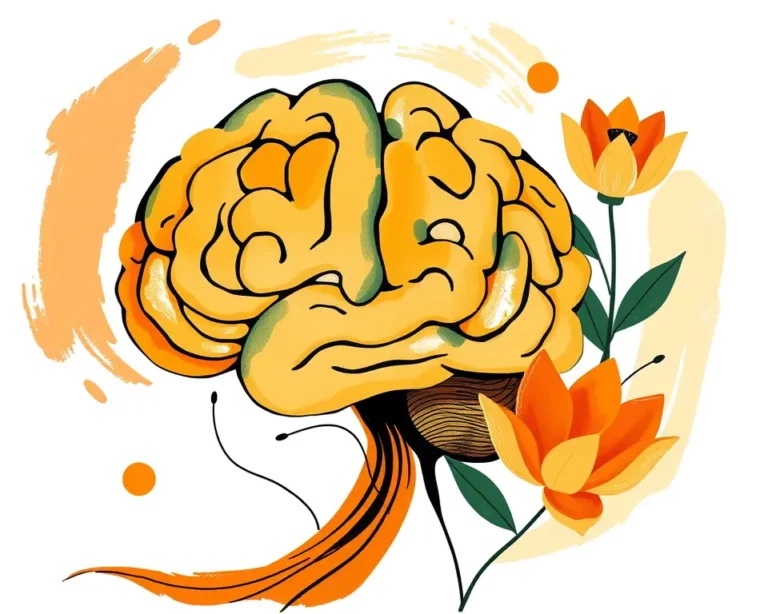Mental fitness is just as crucial as physical fitness for overall well-being. It’s about maintaining a sharp mind, emotional stability, and the ability to navigate life’s challenges effectively. Like physical fitness, mental fitness requires consistent effort and the right practices to achieve and maintain. Embracing mental fitness can enhance daily experiences, improve stress management, and foster stronger relationships.
What is Mental Fitness?
Mental fitness is a state of well-being characterized by a positive outlook and the ability to manage thoughts, feelings, and actions. It involves exercises and practices that promote mental wellness and build resilience to stress. Unlike physical fitness, which focuses on the body’s ability to function, mental fitness hones in on cognitive and emotional strength. Mental fitness equips you with the resilience to navigate tough situations, make sound decisions, and face fears. It also encompasses flexibility, creativity, and emotional balance for a well-rounded, healthy mental state.
Why is Mental Fitness Important?
Mental fitness is essential for navigating daily life with resilience, making sound decisions, and maintaining healthy relationships. It enables individuals to manage stress, adapt to change, and overcome challenges with a positive mindset, contributing to overall well-being and quality of life. Benefits of mental fitness include:
- Improved Well-being: Enhanced emotional well-being, increased happiness, and greater life satisfaction.
- Enhanced Resilience: Equipping individuals with the tools to handle life’s challenges effectively.
- Better Relationships: A positive mindset and emotional resilience can lead to healthier, happier relationships.
- Increased Productivity: Cognitive agility and stress management can improve focus, problem-solving abilities, and productivity.
- Better Emotional Regulation: Helps you understand and manage your emotions more effectively, leading to improved relationships and less conflict in your life.
- Increased Creativity: A mentally fit mind is more flexible and open, which can lead to increased creativity in your personal and professional life.
- A Stronger Sense of Purpose: Engaging in mental fitness can help clarify your values and goals, which can lead to a stronger sense of purpose and direction in life.
- Greater Self-Confidence: When you’re mentally fit, you trust in your ability to face challenges and believe in your capacity to overcome them.
- Better Sleep: By managing stress and anxiety more effectively, your mind can relax, allowing for more restful and restorative sleep.
- Less Reactivity: Mental fitness can help you pause between what happens and how you respond.
Pillars of Mental Fitness
Just as physical health relies on nutrition, exercise, relaxation, and sleep, mental fitness also has key components:
- Physical: Mental and physical health are interconnected and can be improved through diet, exercise, and sleep.
- Emotional: Includes self-acceptance, self-esteem, resilience, and the ability to manage strong emotions.
- Social: Strong social networks and relationships with family are critical for well-being.
- Financial: Low stress levels related to money issues, feeling in control of finances, and being able to handle financial setbacks.
Tips and Exercises to Improve Mental Fitness
Here are several strategies and exercises to improve your mental fitness and overall well-being:
1. Practice Mindfulness and Meditation
Mindfulness and meditation calm the mind, reduce stress, and increase self-awareness. Mindfulness involves paying attention to the present moment, including your thoughts, feelings, body, and the world around you. Meditation is a practice that helps create harmony between the mind and body.
- How to do it: Start with just 5 minutes a day. Sit in a comfortable position, focus on your breath, and let your thoughts come and go without judgment.
- Benefits: Reduces stress, improves focus and concentration, and enhances emotional regulation.
- Example: Try a Mindful Walk. As you walk, notice your breath and the sights and sounds around you. As thoughts and worries enter your mind, note them but then return to the present.
2. Engage in Regular Physical Exercise
Physical activity benefits both the body and the mind. It increases blood flow to the brain and releases endorphins, which have mood-boosting effects.
- How to do it: Incorporate at least 30 minutes of moderate exercise daily, such as walking, cycling, or swimming.
- Benefits: Reduces stress and anxiety, battles depression, and promotes a more positive outlook on life.
- Example: Yoga combines physical movement with mindfulness, providing a dual benefit.
3. Spend Time in Nature
Being in nature reduces anxiety and boosts mood. It lowers levels of cortisol, a stress hormone, and enhances overall well-being.
- How to do it: Take a daily walk in a park, garden, or any green space.
- Benefits: Reduces anxiety and stress, boosts mood, and enhances overall well-being.
- Example: Take a walk in a local park and pay attention to the sights, sounds, and smells around you.
4. Challenge Your Brain with Cognitive Exercises
Engaging in cognitive tasks keeps the brain active and sharp. Activities that require problem-solving, learning, and memory can strengthen neural networks and build cognitive reserve.
- How to do it: Solve puzzles, learn a new instrument, learn a new language, or play strategic games.
- Benefits: Improves memory, problem-solving skills, and overall cognitive function, and may delay cognitive decline.
- Examples:
- Puzzles: Crossword puzzles, Sudoku, jigsaw puzzles, and other games that rely on logic, math, and word skills.
- Learn a new skill: Learning a new language, playing a musical instrument, painting, or trying a new sport.
5. Practice Gratitude
Gratitude helps develop more positive emotions and shift thinking toward optimism. It involves making a point to list the things in your life you are grateful for.
- How to do it: Keep a gratitude journal or make a mental note of things you are thankful for each day.
- Benefits: Increases positivity, improves sleep, and enhances overall well-being.
- Example: Each day, write down three things you are grateful for and why.
6. Prioritize Quality Sleep
Adequate sleep is essential for mental fitness as it repairs and rejuvenates the brain. Poor sleep patterns are linked to cognitive decline.
- How to do it: Ensure 7-9 hours of sleep daily and maintain a consistent sleep schedule.
- Benefits: Improves memory, mood, creativity, and problem-solving skills.
- Example: Create a relaxing bedtime routine, avoid screens before bed, and ensure your bedroom is dark, quiet, and cool.
7. Cultivate Social Connections
Social connections improve emotional well-being and brain health. Engaging in social activities, joining clubs or groups, and volunteering can enhance social connectivity.
- How to do it: Engage in social activities, join clubs or groups, or volunteer.
- Benefits: Provides emotional support, promotes a sense of belonging, and reduces the risk of cognitive decline.
- Example: Make time for family dinners, regular date nights, or coffee with friends.
8. Practice Single-Tasking
Focusing on one task at a time can improve productivity and satisfaction. Multitasking reduces efficiency and increases errors.
- How to do it: Concentrate on one task at a time without distractions.
- Benefits: Improves productivity, reduces stress, and enhances the ability to manage challenges.
- Example: Use the Pomodoro Technique: Work in 25-minute focused intervals followed by short breaks.
9. Limit Distractions and Screen Time
Limiting distractions and screen time can reduce cognitive overload. Constant distractions can impair focus and mental strength.
- How to do it: Create dedicated workspaces, limit social media use, and take regular breaks.
- Benefits: Enhances productivity and reduces mental fatigue.
- Example: Turn off non-essential notifications and designate tech-free hours.
10. Practice Using All Your Senses
Engaging all five senses can strengthen the brain. It helps focus on smelling, touching, tasting, seeing, and hearing simultaneously.
- How to do it: Incorporate activities that engage all five senses, such as cooking, visiting a farmer’s market, or trying a new restaurant.
- Benefits: Strengthens the brain by focusing on sensory experiences.
- Example: Bake a batch of cookies while focusing on the smells, textures, tastes, and sounds involved.
11. Develop a Journaling Habit
Journaling helps express thoughts and emotions, prioritize problems, and track moods. It can also help recognize triggers and develop better control over emotions.
- How to do it: Write down your thoughts and feelings in a journal regularly.
- Benefits: Provides perspective, releases tension, and helps in identifying emotional patterns.
- Example: At the end of each day, write about the events that occurred and how they made you feel.
12. Be Kind and Give to Others
Acts of giving and kindness can improve mental well-being by creating positive feelings, giving a sense of purpose, and helping connect with others.
- How to do it: Perform small acts of kindness or volunteer in your community.
- Benefits: Boosts mood, strengthens connections with others, and helps cope with stress.
- Example: Offer a smile or kind words to someone, or volunteer at a local charity.
13. Learn a New Skill
Learning a new skill activates several parts of the brain simultaneously and promotes neuroplasticity. It strengthens brain connections and keeps the mind sharp.
- How to do it: Take up a hobby, learn a new language, learn to play a musical instrument, or take a course.
- Benefits: Strengthens brain connections and improves cognitive function.
- Example: Learn to play a musical instrument or take an online course in a subject that interests you.
14. Maintain a Balanced Diet
A nutrient-rich diet fuels both the body and the mind. Incorporate omega-3 fats, antioxidants, and vitamin-rich foods in your diet.
- How to do it: Eat a healthy, balanced diet rich in fruits, vegetables, lean protein, and whole grains.
- Benefits: Improves energy and focus, and positively affects mental health.
- Example: Follow the Mediterranean diet, which is rich in fruits, vegetables, and healthy fats.
15. Remember Not Every Thought Is True or Helpful
Train your mind to recognize that not every thought is based on truth and that some thoughts can be harmful.
- How to do it: Challenge negative thought patterns and reframe them into more balanced and constructive thoughts.
- Benefits: Reduces negative thinking and improves emotional well-being.
- Example: When a negative thought arises, ask yourself if there’s evidence to support it or if it’s just a thought.
Incorporating Mental Fitness into Daily Life
Making mental fitness a part of your daily routine is key to long-term success. Consistency matters more than duration, so find practices that are easy to stick to. Even small acts of self-care can have a big impact on your mental health. Here are some tips to help you incorporate mental fitness into your daily life:
- Start Small: Pick one or two habits from the list and gradually incorporate more over time.
- Be Consistent: Regularity and consistency are crucial to building strength and fitness.
- Schedule Regular Check-Ins: Make time to check in with yourself and adjust your routine as needed.
- Seek Support When Needed: Don’t hesitate to seek professional help if you’re struggling to manage your mental health.
Mental fitness is a lifelong journey that requires continuous effort and dedication. By incorporating these tips and exercises into your daily routine, you can train your brain, improve your well-being, and lead a more fulfilling life.







